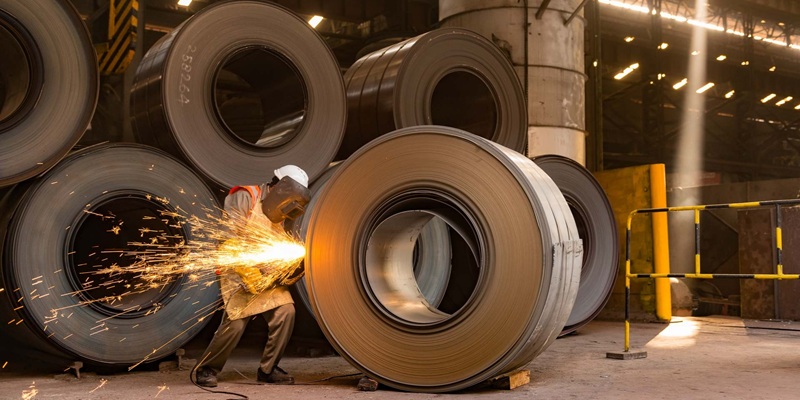Schedule a Call Back
Contractual workforce in tech GCCs see a 4.4% pay gap at entry-level: TeamLease
 Industry News
Industry News- May 02,25

India is rapidly becoming a hub for Global Capability Centres (GCCs),
playing an integral role in driving innovation and digital transformation.
However, while the ecosystem continues to evolve and the workforce grows, there
exists a persistent gender pay gap across various industries, raising questions
about inclusivity and equal opportunity. Exploring this, TeamLease Digital, a
leading specialised staffing firm in India, has done an in-depth analysis of
female participation in the contractual tech workforce within the GCC domain.
GCCs is driving gender diversity, but pay gaps persist
One of the most significant findings is that GCCs lead the way in
fostering gender diversity, especially in contractual hiring. This trend is
largely driven by structured Diversity, Equity, and Inclusion (DEI) policies,
alignment with global workforce standards, and the growth of roles in areas
such as finance, human resources, and digital operations—fields where women
have traditionally been more prominently represented.
The participation of women in GCCs has seen a dynamic trajectory, with
notable growth periods followed by phases of decline and eventual recovery.
These fluctuations reflect evolving hiring patterns and the cyclical nature of
business demands, highlighting the need for sustained efforts to build a
resilient and inclusive workforce.
From 2023 to 2024, GCCs have shown a commendable commitment to improving
gender diversity, particularly at mid and senior levels, with the percentage in
mid levels growing from 12.12% in 2023 to 13.68% in 2024 and the senior levels
witnessing a growth from 8.14% in 2023 to 13.60% in 2024. This rise in women
advancing into leadership roles signals a promising shift in workplace dynamics
and underlines the potential for long-term structural transformation.
Crucially, the analysis indicates a disparity of 16% between male and
female employees, highlighting persistent systemic inequalities and barriers
that affect women's career advancement and salary negotiations. This
underscores the need for continued efforts to ensure equitable compensation
alongside improved representation.
Widening pay gap at senior levels and technical roles
According to TeamLease Digital’s findings, gender pay disparities in
this sector are alarmingly pronounced, especially in senior and technical roles
where women face significant obstacles to career advancement. A detailed
sector-wise analysis reveals stark inequalities in the BFSI segment, with women
earning an average of 26.3% less than their male counterparts. This divide grows
further at senior levels, with women experiencing a pay gap of 23.8%.
In Lifesciences and Healthcare GCCs, the pay gap is a striking 29.5%,
with a pronounced 23.5% disparity at senior levels, one of the highest across
sectors. In contrast, tech GCCs show a better overall gap of 19%. This includes
smaller entry-level disparities at 4.4% and 6% at mid-level, escalating to
16.3% at senior roles. The Energy sector exhibits a notable pay gap
of 15% overall. At mid-level roles, the gap is 7.6%, but it
increases significantly to 18% at the senior level.
A significant disparity in compensation is also evident for tech roles.
In the automotive GCCs, tech roles witness pay gaps that are, on average,
26.3%. This trend continues to manifest across various industries, with the
BFSI GCCs reporting a remarkable 30% pay gap. Meanwhile, the Life Sciences and
Healthcare GCCs exhibit a notable 22.6% difference, and the Tech GCCs stand at
28.5%.
The findings further highlight an average pay gap of 16.4% at senior
levels across GCCs. This trend highlights a crucial issue: while there are
notable advancements in the representation of women in entry- and mid-level
roles, parity tapers down considerably at the higher echelons.
Geography of opportunity
In the city-wise analysis, the analysis reveals that in Tier 1 cities,
female participation in GCCs remains relatively high despite challenges like
high-pressure work environments and limited career advancement opportunities.
In Tier 1 cities, women make up almost 40% compared to the 23.36% in Tier 2
cities. In contrast, Tier 2 cities grapple with more significant gender gaps
owing to a scarcity of large employers, fewer avenues for upward mobility, and
societal norms that restrict women’s career growth. The prospect of relocation
for better job opportunities adds another layer of complexity for women working
in or aspiring to join GCCs in these regions.
The gender pay gap presents a stark contrast between Tier 1 and Tier 2
cities in the GCCs. In Tier 1 cities, the overall gap is at a significant
20.3%. In Tier 1 cities, the situation is more pronounced, especially in BFSI
GCCs, which face a 30.6% pay gap, and lifesciences & healthcare GCCs at
28.6%. Conversely, Tier 2 cities experience a remarkable reduction in these
gaps, except for Tech GCCs, which still reflect a 23% disparity. Key factors
driving this inequality include the influence of standardized global pay
structures and ongoing efforts to recruit diverse talent from local educational
institutions.
Despite the challenges, the findings capture a spirit of optimism. It
points to the narrowing of gaps in some areas and the steady increase of women
entering the workforce across sectors.
Commenting on the research and its findings, Neeti Sharma, CEO, TeamLease
Digital, said, “The GCC ecosystem in India presents a powerful opportunity
to drive change and inclusivity. While the sector has made considerable
progress in elevating women into meaningful roles, the gender pay gap reveals a
deeper systemic challenge. TeamLease Digital’s analysis sheds light on both the
progress made and the challenges that remain in creating a truly inclusive
workforce. Now, it is time for organisations to ensure equity in growth,
compensation, and leadership visibility. Bridging this gap will unlock the full
potential of India's talent pool.”
As India cements its position as a global hub for GCCs, focused and
sustained efforts to close gender gaps in the contractual tech
workforce will be critical. Empowering more women in these roles not
only fosters equitable growth within GCCs but also strengthens India’s global
competitiveness in the tech-driven economy.
(Courtesy: Teamlease
Digital)
Related Stories

Jindal Stainless unveils pioneering supply chain digitalisation project
Project Pragati, in collaboration with Dassault Systèmes and Capgemini, will streamline operations from casting to finishing at Jindal Stainless’ Hisar manufacturing unit, improving productivity ..
Read more
Analysing India’s clean energy goals: Kumar Shivam
India's clean energy ambitions are among the most aggressive globally and success in this arena is not only crucial for the country’s own sustainable development but also pivotal for global climat..
Read more
India eyes $3 trillion industrial opportunity by 2035
Omniscience Capital emphasised that higher domestic consumption—fuelled by rising per capita income—and India’s target of $1 trillion in merchandise exports by 2030 will be major growth driver..
Read moreRelated Products

Dna of All Information
Roto Leaner Technology Pvt Ltd manufactures a complete range of display solutions.

Standard Series Stations and Enclosures
Esbee
Industrial Combines/Esbee Electrotech LLP offers standard series stations and
enclosures.

Fire Alarm
Safe Zone is prominent traders and suppliers of the industry, offering a wide range of wireless fire alarm.
Read more










